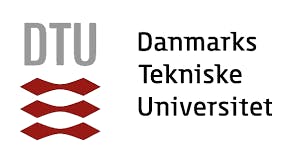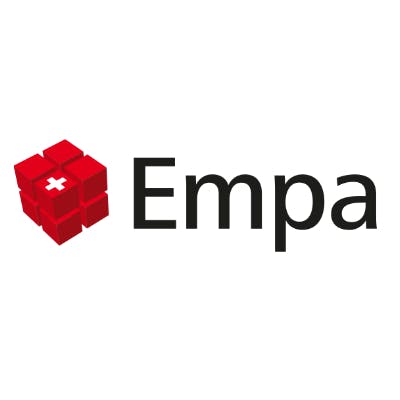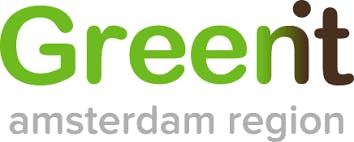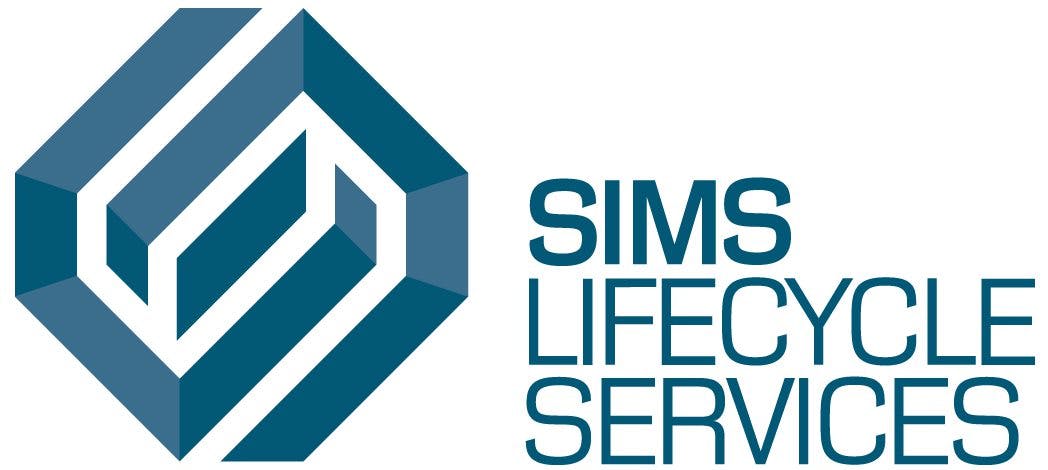Research projects
This registry provides our members and network with an overview of relevant projects happening across the sustainable digital infrastructure ecosystem. It includes basic information about past and current research and pilot projects, innovative products and organizations, regulatory frameworks, industry collaborations, and many other initiatives. They are categorized into three areas: Governance, Research, and Industry. The list is not meant to be exhaustive.
The Boden Type DC ONE solution offers sustainable data centre building, which is energy and resource efficient throughout its lifecycle, cheaper to build and operate and brings jobs and knowledge to remote places. Data centres consists of two distinct elements: The IT equipment and the surrounding service envelope. The Boden Type DC ONE innovation is a new, holistic design approach for data centres surrounding services. The aim of Boden Type DC ONE is to integrate adiabatic fresh air cooling, modular building design, clean and high quality electricity supplied by renewable energy source, ideal climate and service infrastructure.
Other Parties:
Cloudberry is an interdisciplinary research project, with sub-projects in areas ranging from architecture and building construction to energy engineering, flow theory, electrical power, regulation technology and computer science etc. Cloudberry Datacenters is coordinated by Luleå University of Technology and run together with the industry for four years. The project includes twelve sub-projects, each of them having their specific purposes and objectives.
ICE, the Infrastructure and Cloud research & test Environment, was inaugurated in January 2016. The facility is open to use primary for European projects, universities and companies. However, customers and partners from all over the world are welcome to use ICE for their testing and experiments. The ICE mission is to contribute to Sweden being at the absolute forefront regarding competence in sustainable and efficient datacenter solutions, cloud applications and data analysis. This will be accomplished by increasing innovation capability, helping product and service companies excel, as well as attracting more researchers and companies to Sweden to make the business branch even stronger nationally.
The Digital Europe Programme (DIGITAL) is a EU funding programme focused on bringing digital technology to businesses, citizens, and public administrations.
Participating from the Alliance:
Researchers at DTU will work with industrial companies to develop a new cooling and storage system for data centres and server rooms, which will be managed through artificial intelligence and reduce energy consumption and thus CO2 emissions.
This project is the first large-scale research project which will aim on increasing the energy-efficiency of existing data center facilities. The consortium brings together established data center suppliers, building management software, fluid dynamics experts, universities and pilot facilities to explore how existing air-cooled data centers can be transformed through precise measurements, simulations and machine-learning-based optimization.
EEnvest is a H2020 collaborative research project focused on mainstreaming energy efficiency financing in the building renovation sector. The aim of EEnvest is the creation of a tool (a web-based search and match platform) which investors can use to evaluate the risk of investment in energy efficiency for buildings. The web-based search platform will match the demand and offer of buildings to be retrofitted with funding available from external financiers.
Flexi-Sync is an ERA-Net SES financed project focusing on flexible energy system integration using concept development, demonstration and replication. The project gathers 15 partners from four EU Member States (Austria, Germany, Spain and Sweden) and six demo sites in the countries will participate. The partners in Flexi-Sync will all bring their areas of expertise to the project. The combination of experts on district energy flexibility, need owners, such as district energy companies, and their customers is a unique approach in the context of district energy flexibility research.
The Data Centre Industry has grown rapidly and generates a large volume of eWaste / WEEE. The current infrastructure for dealing with this waste is underdeveloped and consequently, there is a real and urgent need to address this now. CEDaCI will build a Circular Economy for the Data Centre Industry by bringing together stakeholders from all equipment life cycle stages to turn this waste into a useful resource and support the ongoing rapid growth of the Data Center Industry.
The energy and resource efficiency of data centers must be increased significantly in order to master future challenges that will be triggered, among other things, by digitization and the associated computing and storage requirements. So it is time to take a closer look at the data centers. So far, the question of the energy efficiency of a data center could not be answered, because the existing key performance indicators only address parts of a data center and they do not include the actual performance of a data center. In 2017, the Federal Environment Agency presented a method and a key figure system called KPI4DCE with which it is possible for the first time to assess the energy and resource efficiency of a data center. In the follow-up project "KPI4DCE 2.0", which started in September 2018, the KPI4DCE key figure system is to be further developed and checked for its informative value and directional reliability through practical application. In terms of a holistic view, KPI4DCE is to be expanded to include economic aspects in order to be able to make valid statements regarding costs in addition to an evaluation of energy and resource consumption. (not an official description)
Other Parties:
There is enough waste energy produced in the EU to heat the EU’s entire building stock; despite of this huge potential, only few small-scale examples of urban waste heat recovery are present across the EU. The objective of ReUseHeat is to demonstrate first of their kind advanced, modular and replicable systems enabling the recovery and reuse of excess heat available at the urban level. ReUseHeat will tackle both technical and non-technical barriers to unlocking urban waste heat recovery projects and investments across Europe. There are four large-scale demonstrators in the project, showing the technical feasibility and economic viability of excess heat recovery and reuse from data centres (Brunswick), sewage collectors (Nice), cooling system of a hospital (Madrid) and underground station (Berlin). The experience from running the demonstrators and from other examples across the EU will be consolidated into a handbook that will provide guidance for investors and project developers and support future uptake of using urban excess heat. It will include innovative and efficient technologies and solutions, suitable business models and contractual arrangements, estimation of investment risk, bankability and impact of urban excess heat recovery investments and authorisation procedures. ReUseHeat kicked off in October 2017 and will run for four years. It is funded by the European Union’s Horizon 2020 Programme for Research and Innovation.
CATALYST aspires to turn data centres into flexible multi-energy hubs, which can sustain investments in renewable energy sources and energy efficiency. Leveraging on results of past projects, CATALYST will adapt, scale up, deploy and validate an innovative technological and business framework that enables data centres to offer a range of mutualized energy flexibility services to both electricity and heat grids, while simultaneously increasing their own resiliency to energy supply.
The STORM project – Developed and tested an innovative District Heating & Cooling (DHC) network controller to increase the use of waste heat and renewable energy sources and boost energy efficiency at district level.
INDIGO, a 3 and a half year project, aims to develop a more efficient, intelligent and economical generation of District Cooling systems by improving system planning, control and management. This target will be achieved through the following specific objectives: Contribute to the wider use of DC systems and motivate the competitiveness of European DC market by the development of two open-source tools: A planning tool for DC systems with the aim of supporting their optimal design; A library with thermo-fluid dynamic models of DC System components which will provide the designers detailed information about their physical behaviour. Primary energy reduction addressed by a ground breaking DC system management strategy focused mainly on energy efficiency maximization but also on energy cost minimization. Its main characteristics is the predictive management but it also will address other challenges such as: Integration of Renewable Energy Sources; Dealing with different types of cooling sources; Suitable coupling between generation, storage and demand. All this, with the help of intelligent and innovative component controllers (Predictive Controllers) to be developed at all DC system levels. Some of them include embedded self-learning algorithms, allowing components to respond appropriately to the set-points established. Developments carried out within INDIGO will be validated in a real District Heating and Cooling installation with appropriate conditions for testing the new functionalities.
The actual energy consumption of buildings in Europe often significantly exceeds the expected energy requirements. This gap in energy performance can arise from construction errors or from differences between the way a building was intended to be used and how it is actually used. An energy management platform could help to reduce this energy gap - and this will be easier thanks to a new and innovative energy reporting platform. To create a new energy reporting platform, the HIT2GAP project will deliver: A generic information platform with protocols for communication with devices and user interfaces Building energy modelling, to establish energy consumption benchmarks A variety of tailored modules to inform users, energy managers and engineers.
Other Parties:
- NOBATEK/INEF4
- Eurecat
- Tekniker
- Fraunhofer
- BRE
- Bouygues Energies & Services
- Giroa Sociedad Anonima
- Mostostal
- R2M Solution
- ABO DATA
- CyRIC
- Zutec
- Enerit
- Evolution Incubateur
- City of Warsaw
- L'Université de Pau et des Pays de l'Adour
- Universitat de Girona
- National University of Ireland Galway
- University of Strathclyde Glasgow
- Ege University
- Cylon Controls
- Wireless Things
The OPTi project aspires to create a long-lasting impact by rethinking the way DHC systems are architected and controlled. The overarching goal is to create business benefit for the industry as well as to ensure optimal end-consumer satisfaction. OPTi will deliver methodologies and tools that will enable accurate modelling, analysis and control of current and envisioned DHC systems. The methodology will be deployed both on a complete system level, and on the level of a building(s). OPTi will treat the DHC system as a system subject to dynamic control, and will treat thermal energy as a resource to be controlled for DHC systems towards saving energy and reducing peak loads. This will lead to the most environmentally-friendly way of utilizing energy sources, thus reducing the reliance on additional boilers running on oil and/or electricity and overall providing a socio-economically sustainable environment.
The EURECA project is an EU commission funded project under the H2020 programme. EURECA started in March 2015 with partners from the United Kingdom, Ireland, Netherlands and Germany. EURECA is designed to provide tailored solutions to help identify the cost saving opportunities whilst signposting the environmental impact of procurement choices in data centres. EURECA is currently supporting consolidation, new build and retrofit data centre projects in various European countries, with focus on public procurement for innovation (PPI). Additionally, EURECA is supporting the development of European standards, best practices and polices related to energy efficiency in data centres and green public procurement by providing the scientific evidence and data.
Other Parties:
Green networked Data Centres as Energy Prosumers in smart city environments. The GEYSER project aims to step well beyond today's Green data centres sustainability efforts by researching and delivering an innovative conceptual and software framework aimed at improving and trading-off local energy efficiency and carbon reduction footprint against a broader system-level smart city energy efficiency, while maximizing the use of renewable energy.
CoolEmAll is a platform for optimising the design and operation of modular configurable IT infrastructures and facilities with resource-efficient cooling.
The Fuel Cell and Hydrogen Energy Association (FCHEA) represents the leading companies and organizations that are advancing innovative, clean, safe, and reliable energy technologies. FCHEA drives support and provides a consistent industry voice to regulators and policymakers. Our educational efforts promote the environmental and economic benefits of fuel cell and hydrogen energy technologies. The mission of FCHEA is to advance the commercialization of and promote the markets for fuel cells and hydrogen energy.




.png?ixlib=gatsbyFP&auto=compress%2Cformat&fit=max)






